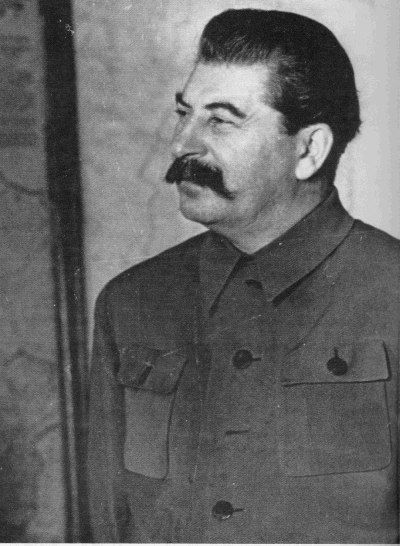 As I continue to read Anatoli Rybakov's Children of the Arbat, it strikes me the ways in which the book gives a face to the Soviet Union under Stalin. It tries to get at the character of Stalin, but not just by looking at famous moments in history. Rybakov looks at the little details. As Budyagin anticipates a meeting with Stalin he has tried to get for over a year, Rybakov characterizes the difficulty of dealing with Stalin, the man like this:
As I continue to read Anatoli Rybakov's Children of the Arbat, it strikes me the ways in which the book gives a face to the Soviet Union under Stalin. It tries to get at the character of Stalin, but not just by looking at famous moments in history. Rybakov looks at the little details. As Budyagin anticipates a meeting with Stalin he has tried to get for over a year, Rybakov characterizes the difficulty of dealing with Stalin, the man like this:In exile, Stalin had once refused to talk to a comrade who'd teased him for sleeping in his socks. Small of stature and puny, he had appeared especially vulnerable in Siberia. He was always cold, so he slept in his socks. Stalin owned a multicolored, quilted silk blanket, and that, too, became the butt of jokes, which Stalin took as proof of his own inability to adapt and as a sign of weakness. Eventually they stopped laughing at him. The realized it was impossible to quarrel with Stalin, as he was incapable of reconciliation.
It's one thing to know that the man had a mustache, or how he assumed the leadership of the party from Lenin, or that in 1934 he believed it was France, England and Japan that Russia needed to fear, not Germany. It's another to know that Stalin's inflexibility extended from the contrary opinion of a once valued advisor about the threat Germany could pose to Russia, to the insecurity he felt about having to wear socks to bed. Or that, on a shopping excursion to replace a lost scarf, Stalin takes a long time because he didn't want a wool that would scratch his neck. He buys the softest and most expensive scarf. Rybakov is collecting for us the kind of details you would want if you were to act the role of Stalin in a play.
The whole portrait of the time is rife with these kind of everyday details. Another important storyline is that of a Komsomol or a student cell of the Communist Party, one of them. Sasha, is first expelled from school and then imprisoned following the publication of a newspaper deemed disloyal. His mother slowly learns from friends and neighbors what kind of foods should be in the packages she sends to her son in prison, or how to interpret the phone call she will receive from the prison officials as to understand whether he will perform forced labor in the North or the South of the country and therefore whether he needs boots and a heavy coat.
A simple detail I particularly enjoyed was that one evening some of Sasha's recently graduated colleagues from school get tickets for a production at the Vakhtangov theater - a tidbitthat was exciting for me to read because I studied everything I could find on this short lived genius of Russian theater - once a pupil of Stanislavsky - from pieces of his production books, to moment-by-moment descriptions of his rehearsal processes. Here is a picture of his legendary production of Turandot.

















5 comments:
I am impatiently waiting for a copy of Children of the Arbat to come in at the library. (I also requested Heavy Sands. Thanks for the reviews/reading updates, as I would never have discovered this author without them! On a slightly different note: I've started putting up a list of Russian authors I want to read or re-read on my blog--if you have any other suggestions I would greatly appreciate them!
Ted - Yes, yes, yes - the details reveal something psychologically. Too many biographers take a Freudian view of their subjects - which (in my opinion) is way too limited, especially with such a political anomaly as Stalin. His mummy didn't love him enough? Sorry. That doesn't explain Stalin.
A blogging friend of mine who lived in Russia at around the time this book came out - was lucky enough to see an amateur production of Children of Arbat. The troupe had adapted the book themselves - and he said it was just unbelievable - so potent and real - with amateur actors, but you know - with that deep sense of reality and exorcism that comes with personal work. Raw. He described how each "Stalin" scene - began with an actor behind a scrim with a light shone on it, so that "Stalin" showed up in silhouette. And the guy had a huge bushy mustache - which showed up in the silhouette, and apparently - he had a pipe, and the posture - the bum leg - this amateur Russian actor dude had it DOWN.
Anyway, it's one of those random productions I so wish I had seen!
Sheila -
It would be wonderful to see a dramatization of this novel, especially one shaped by the events so closely. I feel really poor to never have gone. I want so badly to go to Moscow and St. Petersberg and see theater for a week!
Sarah - your list looks pretty good to me, there's also Gogol, Andrei Bely, and then on the modern front, Victor Slavkin, Alexandr Solzhenitsyn, Tatyana Tolstaya.
Sarah - oh, and Gorky and Ostrovsky.
Post a Comment